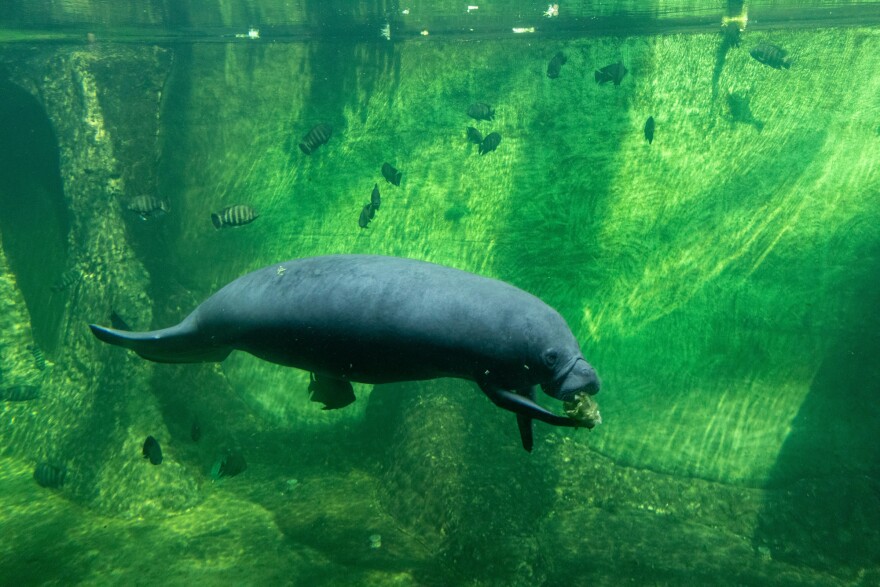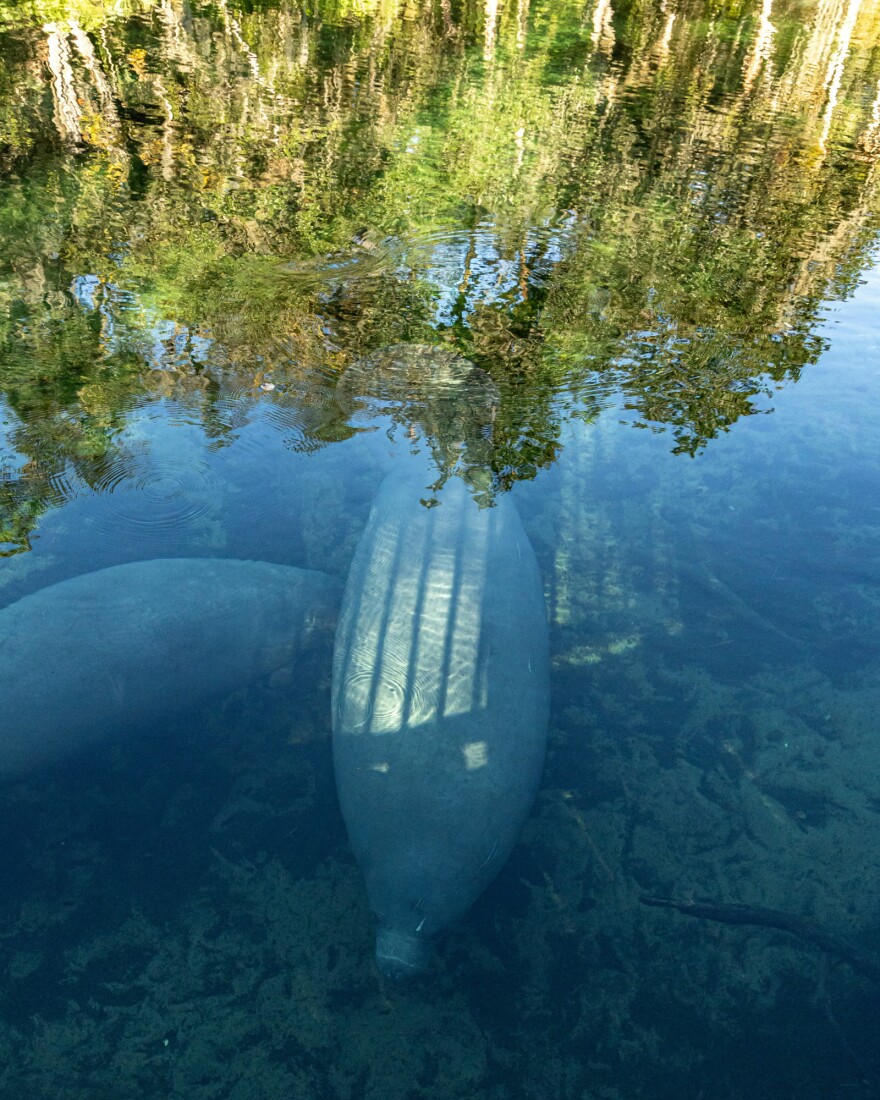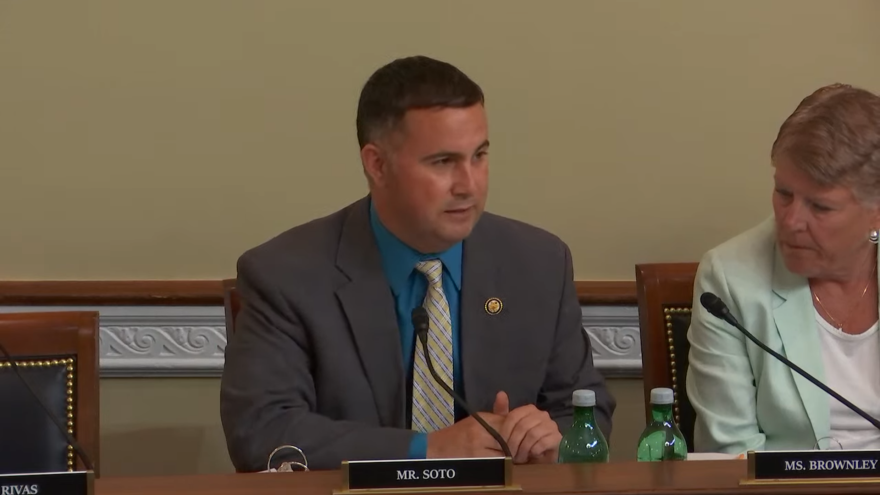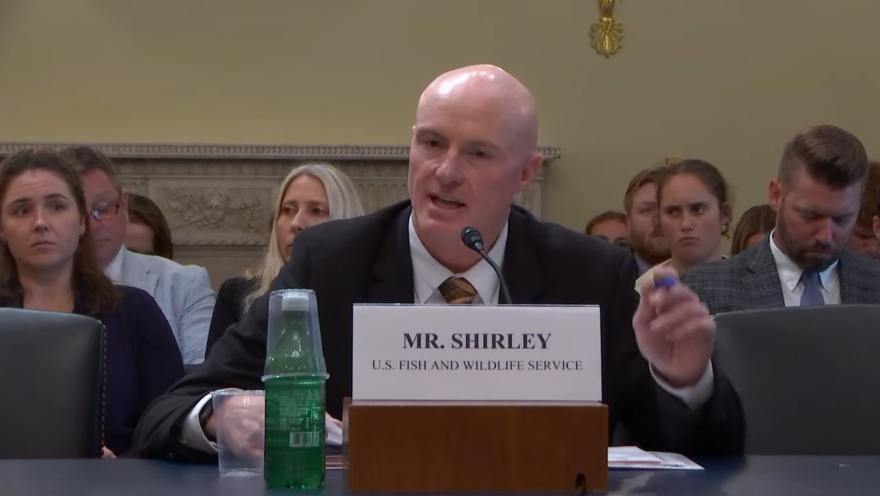Federal lawmakers want to overhaul the Marine Mammal Protection Act, with changes aimed at bringing "objectivity and clarity" to terms they argue are vaguely defined in the current law.
Since the MMPA's passage more than 50 years ago, not a single marine mammal has gone extinct in U.S. waters, according to the National Oceanic and Atmospheric Administration. But the proposed MMPA changes would tarnish that track record, critics of the proposal say, pointing to "unprecedented language" that would weaken protections for manatees and other marine mammals.
"Americans love marine creatures and want to protect them," Earthjustice Legislative Representative Kristin Butler wrote in a statement. "We would not have as many sea otters, or have been able to save the humpback whale, without this law. Why in the world would we stop protection now and put marine species back on a path to extinction?"
So far in 2025, 477 manatees have died in Florida: more than in either 2024 or 2023, according to FWC data. Most of those deaths — many of them perinatal, or baby manatees — have happened in Brevard, a longtime manatee hub.
READ MORE: Lawsuit is ready to battle cuts at the world's largest manatee sanctuary in Crystal River
Rep. Jared Huffman (D-Calif.) decried the proposed MMPA changes at Tuesday's hearing of the Subcommittee on Water, Wildlife and Fisheries.
"The discussion draft before us would lower conservation goals from maintaining healthy, functioning populations to just bare survival. Just don't let it go extinct," Huffman said. "This bill amounts to a death sentence for many marine mammals.
"Under this bill, several more deaths annually would be brushed off as negligible by the standard that is being proposed. That's not a path to recovery. It is a path to extinction," Huffman said.

Rep. Nick Begich, R-Alaska, presented the MMPA discussion draft to fellow lawmakers at a subcommittee hearing earlier this week. He maintained the proposed changes are intended to add clarity to MMPA terms and processes which currently create confusion and federal permitting delays, leaving important projects like harbor expansions in "bureaucratic limbo."
"It puts firm, predictable timelines on incidental take authorization, so that projects aren't left in bureaucratic limbo," Begich said.

In relation to plant and animal species, "take" means "to harass, harm, pursue, hunt, shoot, wound, kill, trap, capture or collect, or to attempt to engage in any such conduct," according to the Environmental Protection Agency. "Incidental take" is defined as "take that is incidental to, and not the purpose of, the carrying out of an otherwise lawful activity."
One example of "incidental take" is clearing land for construction and, in the process, unknowingly destroying the nest or young of an animal species listed as threatened in the state, according to the Florida Fish and Wildlife Conservation Commission.
Since 1972, the MMPA has played an important role in protecting oceans and conserving marine mammal populations, Begich said. "But as the decades have passed, we've also seen how its implementation, particularly in the use of vague or overly precautionary standards, has led to confusion, delay and unintended harm."
Begich said Tuesday the current set of changes proposed for the MMPA is only a starting point, not a final pitch, and said he's committed to working in a bipartisan manner for common-sense reforms.
"The tension between marine mammal protection and human activity exists in red states and blue states alike, and our coastal communities deserve solutions that are workable, transparent and fair," Begich said.

Rep. Darren Soto (D-Fla.), who represents Central Florida, is opposed to the MMPA discussion draft because it would weaken existing protections, according to a representative from his office.
At Tuesday's subcommittee hearing, Soto urged U.S. Fish and Wildlife Service Acting Director Justin "J" Shirley to consider the range of consequences that could arise from fundamentally changing the MMPA, as well as the Endangered Species Act.
"They [both laws] help bring the resources to our community to do a whole lot of other things, like protecting clean water; like protecting recreational fishing; like making sure that tourism, our top industry, is protected," Soto said. "While the manatee is a big part of this, this is about way more than just the manatee for our area."

FWC Major Bill Holcomb also spoke at Tuesday's hearing. He shared the state agency's support for two proposed bills, including one that would extend Florida's ban on shark feeding nationwide.
Holcomb did not mention the MMPA discussion draft. Asked to confirm FWC's position on the proposal, an agency spokeswoman wrote: "The FWC's marine mammal experts are reviewing the discussion draft. The state has a long history of working to ensure Florida's manatees continue to prosper into the future."
Meanwhile, in his own testimony for the subcommittee, Shirley said President Donald Trump's administration is focused on "streamlining regulations and making sure they work for the American people." Shirley shared support for several other pieces of legislation proposed Tuesday, including one proposal to revise ESA provisions that create barriers for aquaculture farmers raising sturgeon, a type of fish that produces caviar eggs.
But as far as the MMPA discussion draft, Shirley did not explicitly say whether or not the USFWS supports it as currently written.
"The Service appreciates the sponsor's work on marine mammals issues and intent to modernize the MMPA. We would welcome the opportunity to work with the sponsor and subcommittee to help address implementation challenges with the draft legislation," Shirley said Tuesday.
Copyright 2025 Central Florida Public Media




